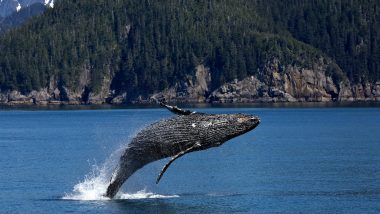Whales have been hunted commercially for thousands of years. They are hunted for meat, fat and oil. Despite the 1986 International Whaling Commission (IWC) ban on commercial whaling, some countries refuse to end their whaling operations. At the recent IWC conference in Brazil, Japan called for significant changes by proposing to put an end to the 32-year-old ban on commercial whaling. The country’s presenters argued that there was no longer a scientific reason for what was supposed to be a temporary measure. Naturally, the proposal faced stiff opposition from other countries claiming that many whale populations are still vulnerable or broadly, the killing of whales is increasingly seen as unacceptable. ‘Rare’ Blue Whale Caught and Killed by Icelandic Whaling Company.
Japan signed the International Convention for the Regulation of Whaling in 1951, and the IWC declared a pause on commercial whaling in 1986. But Japan has continued to hunt whales apparently for “scientific research.” The Japanese proposal presented at the biannual IWC reads, “Science is clear: there are certain species of whales whose population is healthy enough to be harvested sustainably.” The nation plans to establish a committee dedicated to sustainable whaling. Japan’s proposal would change how the IWC operates. Reflecting its frustration over the organisation, it says has become “intolerant” and a “mere forum for confrontation.” It is however not clear when the vote will happen, and the meeting is scheduled to continue till September 14. Japan Whale Hunt Killed 122 Pregnant Minke Whales.

Countries Who Continues to Whaling:
Apart from Japan, there are a few other countries which still refuses to end their whaling operations.
Norway: The country only respected the IWC’s whaling ban till 1993. Considering a loophole in the International Convention for the Regulation of Whaling, Norway objected to the whaling moratorium and resumed to hunt. Its whalers are permitted to kill minke whales for commercial reasons. The number has only gone up. From being allowed to kill 671 minke whales in 2002, it increases to 1,000 today. According to the International Fund for Animal Welfare (IFAW), Norway is hunting a higher proportion of breeding females which could put the long-term survival if minke whales in danger.
Iceland: Like Japan, Iceland too initially conducted the “scientific” whaling programme. In 1992, it withdrew from the IWC. When Iceland re-joined in 2004, it included a clause in its re-entry that stated an objection to whaling pause. Two years later in 2006, Iceland resumed commercial whaling, targeting minke and fin whales. IFAW revealed that in 2010 alone, Icelandic whalers killed 148 endangered fin whales and 60 minke whales.
Faroe Islands: The Faroes, a self-governing country within the Kingdom of Denmark since 1948 has an annual tradition of whaling. The localities participate in it during the summer months since they consider the whale meat an important part of their food culture. Everyone in the family from young to old takes part in whaling. This annual tradition was highlighted last month, and the Faroese faced a huge backlash from social media. The pictures are disturbing!
Meanwhile, at the IWC conference, the United States and a few other countries agree that the ban is necessary for conservation. The killing of the marine animals is allowed for research purposes as in Japan’s program. The country has hunted whales for centuries as a cheaper alternative source of protein to meat. IWC will later this week give its verdict on whether to continue or overturn the ban on commercial whaling.
(The above story first appeared on LatestLY on Sep 12, 2018 01:35 PM IST. For more news and updates on politics, world, sports, entertainment and lifestyle, log on to our website latestly.com).













 Quickly
Quickly


